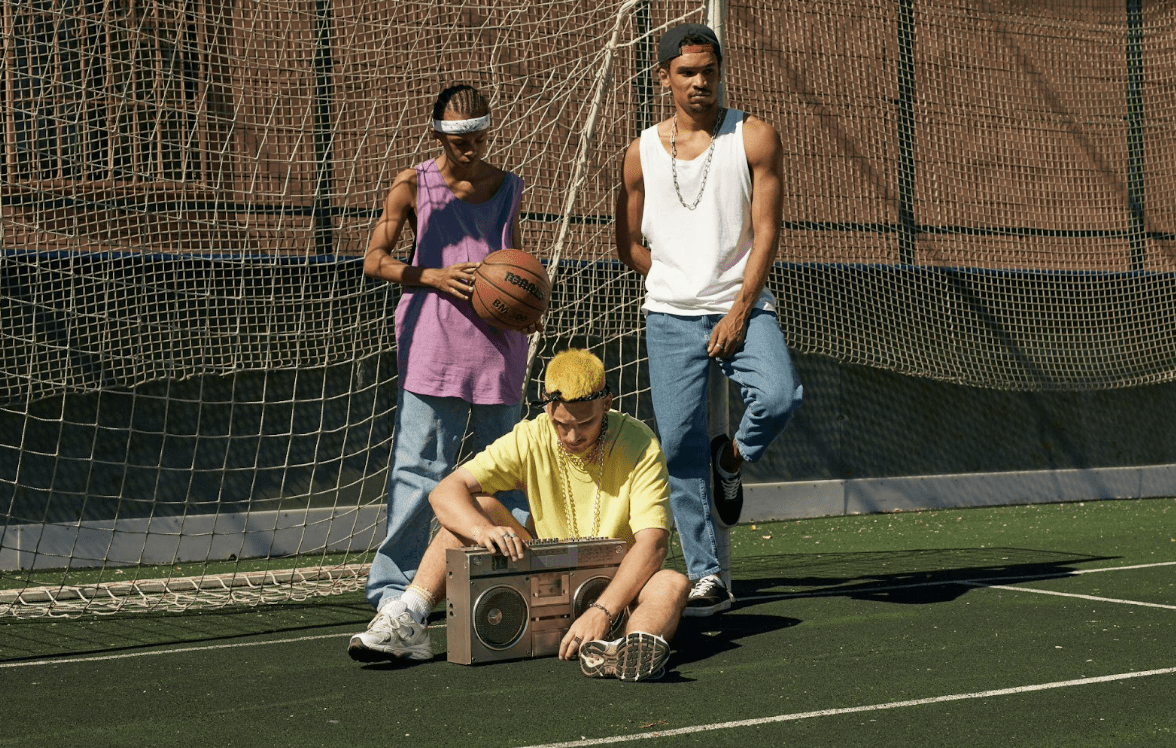
In North Carolina, the relationship between hip-hop and basketball is a colorful variety made of strands of skill, passion, and culture. This connection isn’t accidental; it results from the profound symbiosis between two artistic mediums that have shaped one another over time. Two examples of this dynamic interaction are North Carolina’s blossoming hip-hop movement and historic basketball tradition.
The Cultural Intersection
The cultural intersection of hip-hop and basketball in North Carolina transcends mere entertainment, embedding itself deeply within the state’s social and cultural fabric. This phenomenon is not just about shared spaces or interests; it represents a profound dialogue between two dynamic forms of artistic expression that have evolved side by side, influencing and shaping each other along the way.
Hip-hop and basketball have an effective partnership in North Carolina, which indicates a more significant national and international trend where these two cultural elements converge. This relationship is deeply rooted in the shared experiences and mutual respect between the communities that champion these forms of expression.
Basketball courts across North Carolina have long served as stages for more than just athletic prowess; they are communal spaces where the rhythms and rhymes of hip-op resonate, creating a vibrant backdrop to the on-court action.
This cultural blend is evident in how hip-hop celebrates basketball in its lyrics, videos, and lifestyle. In contrast, basketball has embraced hip-hop through its players, fan experiences, and off-court culture. The influence of hip-hop on basketball in North Carolina is not limited to the music played in arenas or the players’ fashion choices. It extends to the very ethos of the game, where the creativity, competitiveness, and flair of streetball are mirrored in the hip-hop narrative of struggle, triumph, and self-expression.
Influential Figures
The basketball and hip-hop scenes in North Carolina have significantly been and diversely impacted by J. Cole. This Fayetteville native, whose real name is Jermaine Lamarr Cole, has achieved great success in the music business and created a lasting impression on the basketball community domestically and globally. His transition from a budding basketball player to a hip-hop icon and back to the game as a member of the Basketball Africa League is evidence of his strong ties to both realms.
Cole’s dedication to his craft and his roots in North Carolina has played a vital role in shaping the state’s cultural narrative around hip-hop and basketball. His music often reflects the struggles, aspirations, and experiences of many North Carolinians, resonating with a broad audience and providing a voice to the voiceless.
Through his lyrics, Cole has managed to weave the competitive spirit of basketball with the rhythmic storytelling of hip-hop, creating a unique blend that speaks to fans of both domains.
Moreover, J. Cole’s involvement in basketball extends beyond mere participation. He has used his platform to bridge the gap between the two cultures, highlighting the similarities in the dedication, passion, and perseverance required to succeed in both fields.
The Role of Streetball
The role of streetball in North Carolina is a vivid illustration of the state’s vibrant sports culture, particularly where it intersects with hip-hop. Streetball, a less formal version of basketball played in outdoor courts and playgrounds, is not just about the game; it’s a cultural event that brings communities together, showcasing not only athletic talent but also the creative energy of hip-hop.
In North Carolina’s urban centers, streetball tournaments and playground games are more than mere athletic contests; they celebrate hip hop culture featuring live music, dance, and art. These vibrant gatherings showcase the state’s rich tapestry of talents and offer a unique platform for integrating various aspects of local culture, including the emerging scene of North Carolina betting promos.
These events create a festive atmosphere where the spontaneity and creativity of hip-hop fuel the competitive spirit of basketball. The music blaring from speakers sets the rhythm of the games. At the same time, graffiti artists often adorn nearby surfaces with vibrant murals, adding a visual element to the auditory and kinetic spectacle.
Educational Impact
The educational impact of the hip-hop and basketball connection in North Carolina is significant, with various programs and initiatives across schools and universities leveraging this relationship to engage students and promote learning.
The Carolina Hip Hop Institute, for example, is an 11-day program hosted by the University of North Carolina that immerses students in the art and culture of hip-hop. Participants can choose from courses focusing on different aspects of hip hop, from music production to cultural studies, highlighting the educational value of this artistic form.
In addition to university-level programs, local high schools and community centers in North Carolina have also embraced the educational potential of hip-hop and basketball. These institutions often host events, workshops, and after-school programs that explore the historical and cultural ties between these two influential cultural phenomena.
Conclusion
In North Carolina, hip-hop and basketball have a link that demonstrates the continuing force of cultural confluence. This partnership has enhanced the state’s cultural climate and given athletes and artists a platform. North Carolina is a role model for how music and athletics may come together to inspire, challenge, and unify as long as they continue to foster this relationship.